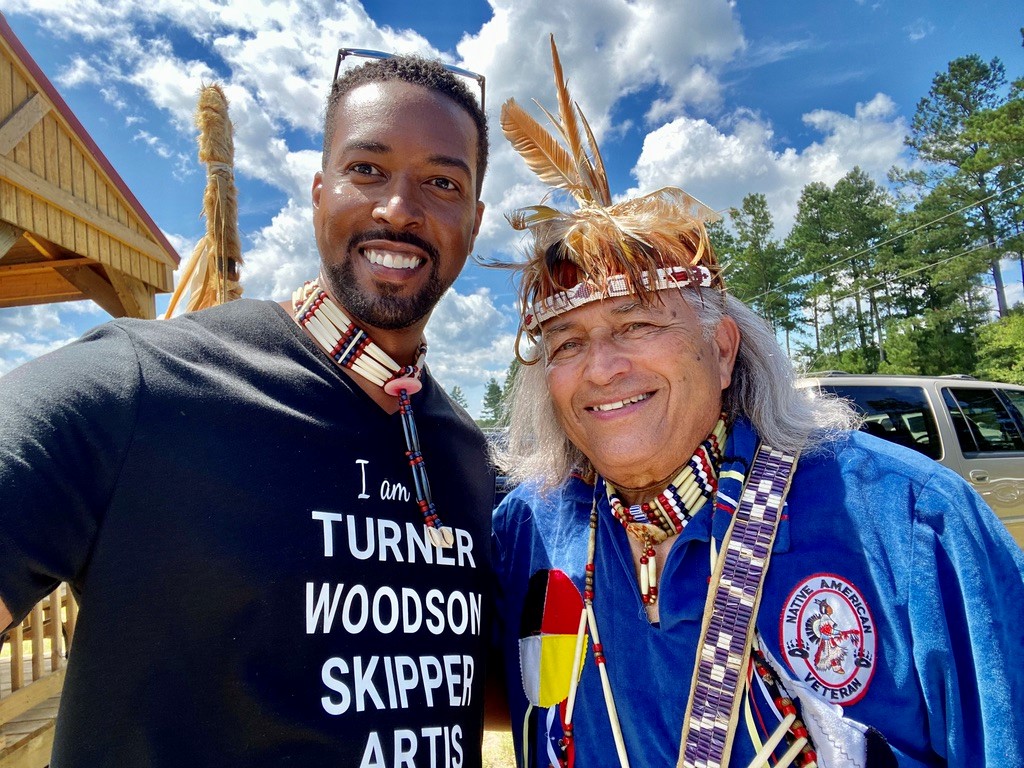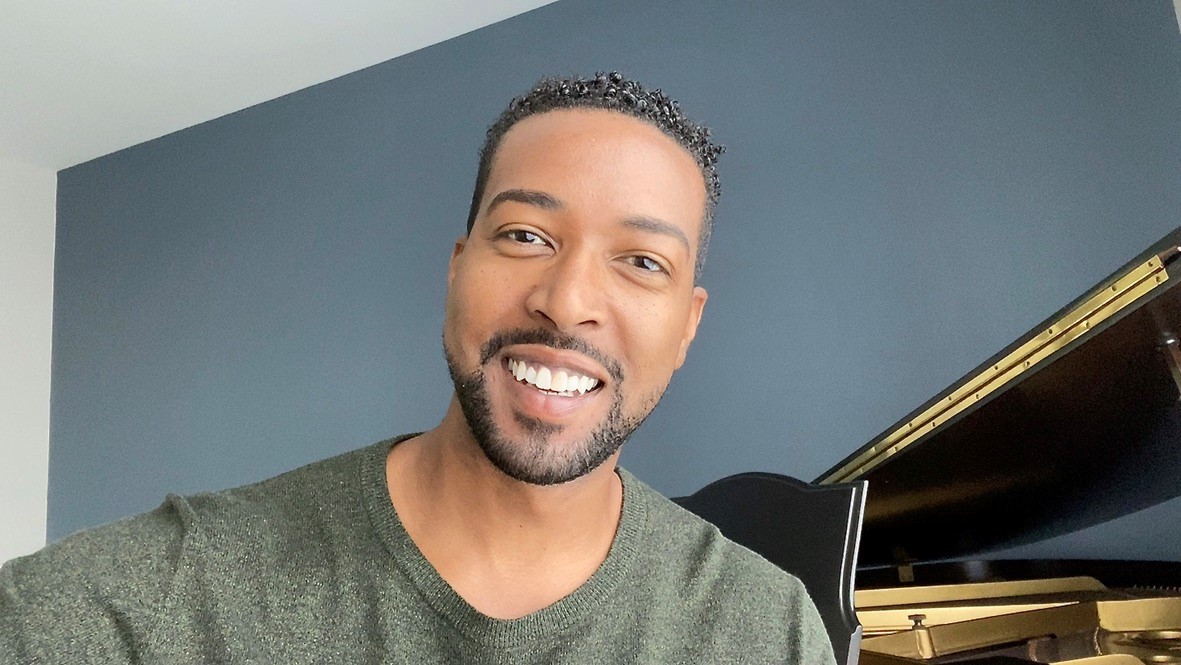Aaron "Great River Moon" Moss
Aaron "Great River Moon" Moss, assistant professor of Theatre/Directing and descendant of the Cheroenhaka/Nottoway, Pamunkey, Accomacke and Cherokee nations, reflects on what Indigenous Peoples' Day means to him.
Hunte EE Sunke Waswekr (Creator, my heart speaks).

I share this phrase from my Ena Darsunke (mother tongue): Cheroenhaka ('People at the Fork of the Stream'). It reminds me of the importance of Indigenous Peoples' Day — an opportunity for truth telling. A moment to speak and be heard. A moment for honesty.
As history details and archeology confirms, the aboriginal people of the Americas (Turtle Island) encountered visitors from across the world throughout pre-historic America. People came and went; some remained and immersed themselves into the local cultures. Some came and conquered small regions — but none were as cataclysmic as the arrival of the Spanish and Portuguese in 1492.
That arrival marked the beginning of a horrific era in American history — one we are still reckoning with today. As a result of massacres, genocide and removal, the myth was perpetrated that we no longer existed. The legacy of that myth is that we are the only people in America expected to substantiate our identity.
Being an Indigenous-American in the United States has meant having teachers describe me in history in mere past tense — characterizing our governments, architecture, spiritual practices, languages, culture and blood as extant.
It means having people doubt my existence when I don’t resemble those natives who have been selected to represent me in the media. It entails people trying to hyphenate my nationality when my identity precedes the need for hyphenates.
As described in the 1828 Black’s Law Dictionary, American is defined as "…originally applied to the aboriginals, or copper-colored races, found here by Europeans; but now applied to the descendants of Europeans born in America." Being an Indigenous American means reminding people that we are American and that we are still here.
For me, today is also an opportunity to reflect on the extraordinary journeys and resiliency of my Indigenous ancestors. Despite having ancestral lands stolen, being displaced and enslaved, they survived so that we could still be here.
Today, being an Indigenous American means repairing the paper genocide throughout history by addressing the negative impact of people such as Walter A. Plecker, a eugenicist and first registrar of Vital Statistics in Virginia during the first half of the 20th century.
To support his fictitious view of a "superior race," Plecker insisted that society only have two racial categories — Black and white. Therefore, he changed Indigenous peoples' government records to reflect those two racial categories. Through the age of Pleckerism, correctly identifying one's self as Indian became a crime.
Today, being an Indigenous American means hearing my grandparents tell stories of having clean water, clean air, and real food — a reality I do not know today. It means learning the history and culture of being stewards of the land, while having to watch those life necessities being poisoned and detrimentally altered.
For me, today is also an opportunity to reflect on the extraordinary journeys and resiliency of my Indigenous ancestors. Despite having ancestral lands stolen, being displaced and enslaved, they survived so that we could still be here.
As I consider even the change in nomenclature from Columbus Day to Indigenous Peoples' Day, I am inspired by those who are willing to reflect and repair. In the same ways we reclaim our identity as Aboriginal Niijii, today represents reclaiming the true history and meaning of this day.
Embracing Indigenous Peoples' Day means that instead of commemorating hatred, violence and genocide, we celebrate ourselves! We celebrate that we are still here!
This Voice was originally published in 2021. At the time of publication, and currently, Moss was a professor in the School of Arts and Humanities. Learn about his upcoming project with chair of the Africana Studies program, Donnetrice Allison, "Teaching While Black" in the school's Faculty Highlight.
Related Articles:



